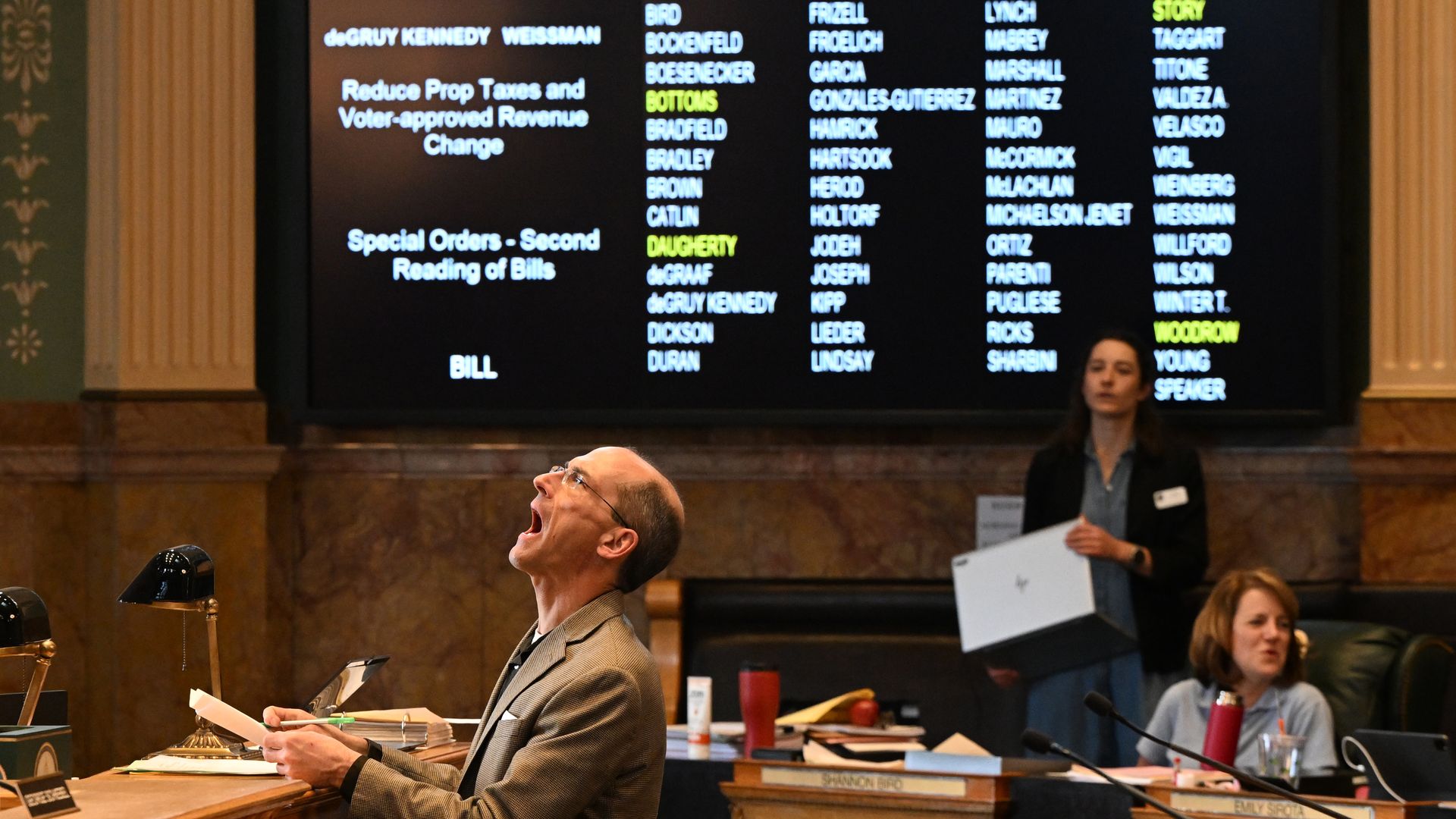Democrats rush through major tax bills in final hours of session
Add Axios as your preferred source to
see more of our stories on Google.

Democratic state Rep. Mike Weissman, left, yells out an "aye" vote during debates on a property tax bill Sunday in the House chamber. Photo: Helen H. Richardson/Denver Post via Getty Images
In less than 48 hours, working through the weekend and into the night, the Democratic-majority at the Colorado Capitol introduced and approved a bill to revamp $2 billion in taxpayer refunds.
Why it matters: The hurried lawmaking ahead of Monday's adjournment deadline showcased how Democrats flexed their unprecedented power this legislative session, but it prompted a protest by Republicans who walked out of the House in the middle of a debate just after 7pm.
State of play: The Legislature adjourned for the year at 10pm after passing dozens of bills, including a package of legislation that ties a redistribution of taxpayer refunds to a ballot measure lowering property taxes.
- The last-minute TABOR bill — introduced Saturday and heard in committee before it was posted publicly online — won final approval Monday despite objections from Republicans who said lawmakers should be "embarrassed" because the process "disrespected the public."
- Senate Democrats didn't counter the arguments in the final debate, but in prior statements, advocates said the bill helps people who don't own property and won't benefit from any property tax reduction and gets money to those who need it most.
By the numbers: Instead of a tiered income tax rebate based on income, taxpayers would each get a flat $661 when claimed in 2024.
- Compared to the current system, the legislation would increase refunds by $55 to $207 for those with adjusted gross income below $100,000, which is roughly 60% of taxpayers.
- Individuals and joint filers making more than $100,000 would get smaller refunds than initially anticipated.
The intrigue: The change won't take effect unless Colorado voters approve a November ballot measure on property taxes — which lawmakers sent to the ballot in the session's final hours.
- The property tax bill reduces a homeowner's tax liability by $50,000 for 2023 — up from the previous $40,000 in the original draft — and slightly lowers the tax rate to 6.7%.
- The loss in property tax revenue for local governments is partly backfilled by a portion of excess state revenues that otherwise would have gone to taxpayers as refunds.
What they're saying: "It's a shell game, taking money out of one of your pockets and back out the other," Sen. Bob Gardner (R-Colorado Springs) said during the debate.
Of note: Gov. Jared Polis' major housing bill did not make it across the finish line. His party's leaders in the House and Senate could not come to an agreement on the measure, and left it to die.
- A much-watched bill designed to curtail high energy bills slid through in the final hours. It will limit utilities from charging ratepayers for some lobbying and marketing costs and allow spikes in gas prices to get spread over multiple months.
- A provision to increase the minimum age for criminal prosecution to 12, up from 10, in most crimes was stripped from a bill in favor of a task force to study the issue.
Go deeper: 32 ways Democrats changed Colorado in the 2023 legislative session
